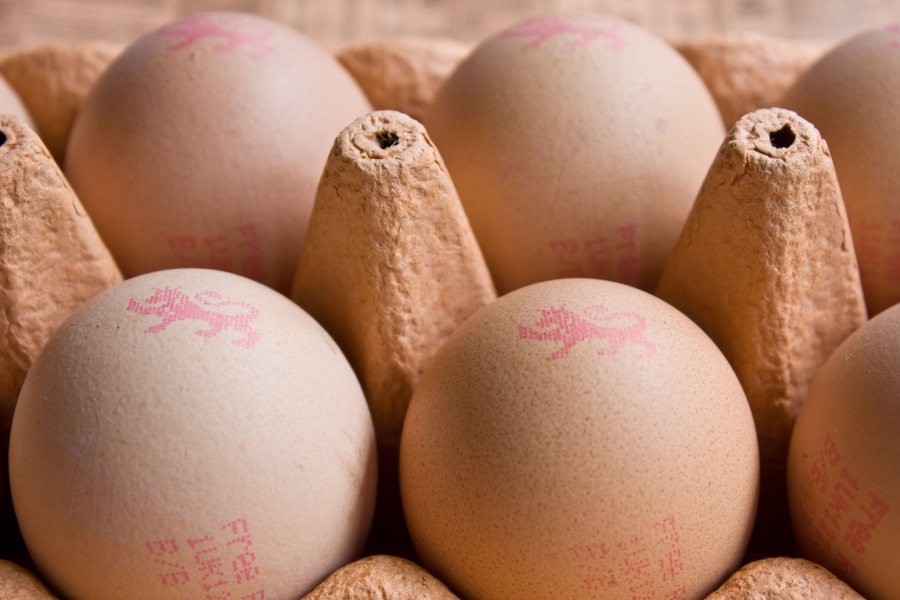
British egg producers are continuing to quit the sector on a weekly basis due to soaring input costs and inadequate renumeration from the retailers.
The British Free Range Egg Producers Association (BFREPA) announced back in November that a third of it’s members had cut back on production or left the sector as they were unable to cover their costs.
Furthermore, a poll of BFREPA members as far back as April last year revealed that 70% of free-range producers planned to leave within 12 months unless the uncertain and risky financial situation was resolved.
According to Defra farming minister Mark Spencer, the UK is currently around 92% self-sufficient in eggs, with around 38 million laying hens across the country.
But since he made this statement back in November, more free range egg producers have decided to quit.
BFREPA data showed that by November 2022, flock size had fallen year on year from 44 million to about 36.7 million birds.
Government statistics - data to September 2022 - shows that 213 million dozens were packed in UK egg packing stations during the third quarter of 2022.
This represents 9.6% decrease on the third quarter in 2021 and a 4.1% decrease on quarter two 2022.
The number of eggs which passed through the packing stations in Q3 2022 decreased 9.6% on the same quarter in 2021.
Egg shortage hit the UK from November, resulting in many supermarkets rationing eggs to customers, which continued well past Christmas.
Some estimates suggest Britain’s egg production could plunge by eight million in 2023.
Eggs are seen as a relatively cheap source of protein, against a backdrop of escalating food prices which is increasing at its fastest rate on record.
Data released earlier this month by the British Retail Consortium showed food price rises were up to 13.3% in December, from 12.4% in the previous month, the highest inflation rate in the food category on record.
Meanwhile, fresh food inflation leapt to 15 percent last December from 14.3 percent in November, another record inflation rate.
The supermarkets are pressurising producers to maintain low prices in support of their customers who are struggling with these and other inflationary pressures.
Helen Dickinson, the chief executive of the British Retail Consortium noted that “food prices have continued to soar, especially for meat, eggs and dairy, which have been hit by rocketing energy costs, and rising costs of animal feed and transport."
She then went on to urge shoppers to be mindful: “If we are all considerate in the way we shop, everybody will get the products they need”.
Andrew Opie, the director of food and sustainability at the British Retail Consortium, said supermarkets are "constrained by how much additional cost they can pass on to consumers during a cost-of-living crisis."
Egg shortages have continued in recent months and the BFREPA survey in November showed that a third of the farmers surveyed had reduced their flocks due to prices, with a quarter coming out of production entirely.
The NFU has called on the government to step in over feed, fuel and fertiliser prices, warning that "the country is sleepwalking into further food supply crises".
The union's president Minette Batters said the events of the past year had made the job of producing food much harder throughout the world.
“The importance of British farming to deliver food and energy has never been clearer,” she said. “To do this we need to build profitability and resilience into our farm businesses, to allow us to safeguard the nation’s food and energy security.”
Mrs Batters called on Prime Minister Rishi Sunak to honour his pledge to support British farming by setting a target for the nation’s food security, with a statutory duty to report on domestic food levels.
“I am hopeful that 2023 will be the year that government gets serious about British food and farming,” she said.
NFU Scotland president Martin Kennedy lay the blame for the UK’s poor and declining self-sufficiency at the door of retailers and the inadequate returns made to primary producers.
He also recommends that the industry should look to educating consumers and increasing the proportion of local food used by public bodies as part of the solution to improving sustainability.
Ulster Farmers’ Union president, David Brown added: “The government needs to continue to take action to prevent a situation where British food is replaced by food imports.
"Imports which could fall way below our own highly valued standards of animal health and welfare and environmental protection.”
At the end of last year, BFREPA asked Defra to undertake a supply chain fairness review.
